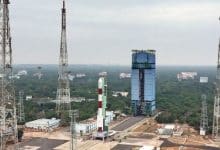Could Thailand become ASEAN’s first spaceport?

Thailand is setting its sights on the stars, with bold plans to become ASEAN’s first spaceport. Thanapant Raicharoen, a commissioner of the National Broadcasting and Telecommunications Commission (NBTC), urges the country to seize the opportunity to become a key player in the rapidly growing space industry.
Thanapant envisions Thailand playing a vital role not only in satellite development but also in sending astronauts into space and building data centres in orbit.
The NBTC commissioner points to Thailand’s strategic southern region as an ideal spot for a rocket launch pad, thanks to its proximity to the equator. This geographical advantage would allow rockets to benefit from the Earth’s rotation, enabling heavier payloads, such as satellites, to be launched using less fuel. Clear skies, stable temperatures, and minimal risk from natural disasters make it a prime location.
Thanapant suggests collaboration with international players, such as China, to drive joint investments and bring in advanced technology. He compares the space venture to Thailand’s past success in attracting Japanese investors to boost its automotive industry, which became a thriving sector.
Though the NBTC isn’t directly responsible for spaceport development, Thanapant is adamant about their role.
“We have the duty and authority to grant permission to use satellite orbits.”
With growing interest from private firms and increasing demand for smaller, low-Earth orbit satellites, the time might be right for Thailand to launch itself into the global space race, reported Bangkok Post.
In related news, Thailand’s television landscape is in turmoil, and a new study says it’s time for a fresh set of rules to manage the booming audio-visual (AV) market, including streaming platforms, geo-satellite broadcasts, and digital terrestrial TV (DTT). The report, commissioned by the NBTC and carried out by SCF Associates, was made public on August 25.
In other news, Thailand and China have taken a significant leap towards space exploration, establishing initial agreements for collaboration on the peaceful use of outer space and international lunar research stations. These pacts were announced by the China National Space Administration (CNSA).
Latest Thailand News
Follow The Thaiger on Google News:


























